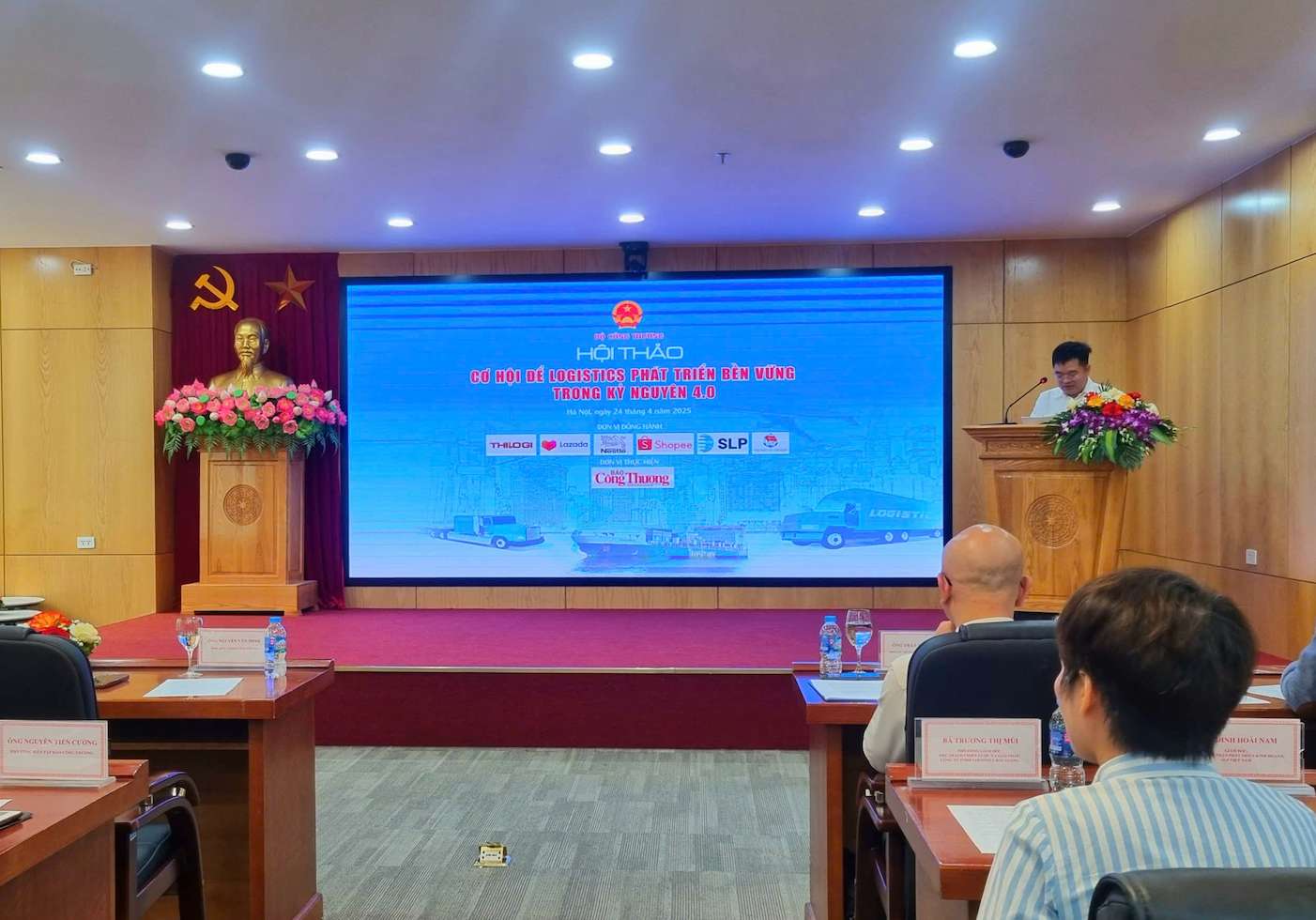In the context of increasingly deep integration and the constantly fluctuating global supply chain, the Vietnamese logistics service industry is facing both challenges and great opportunities. For logistics to not only be a supporting link, but also become a driving force for trade growth and national competitiveness, it is necessary to have clear and timely strategic orientations from state management agencies.
Speaking at the workshop "Opportunities for Sustainable Development of Logistics in the 4.0 era" organized by the Industry and Trade Newspaper in coordination with the Import-Export Department - Ministry of Industry and Trade, Dr. Bui Ba Nghiem - senior expert of the Import-Export Department (Ministry of Industry and Trade) analyzed that Vietnam needs to build a modern logistics ecosystem, closely linked with the global supply chain. In particular, two strategic pillars, digital logistics and green logistics, will be the lever to help businesses optimize costs, improve competitiveness and expand markets.

We cannot talk about e-commerce, digital transformation or green growth if logistics cannot keep up. Logistics businesses need to proactively transform, instead of just playing a logistical role" - Dr. Bui Ba Nghiem emphasized.
According to Mr. Pham Nguyen Thanh Quang - General Director of Lazada Logistics, LEX Vietnam, in the 4.0 era, logistics has become a high-tech service industry. Mr. Quang said that LEX Vietnam has comprehensively applied technologies such as artificial intelligence (AI), Big Data, IoT sensors and supply chain management systems to automate processes and improve user experience".
"Our AI system is integrated in stages from order prediction, delivery line optimization, logistics coordination to consumer behavior analysis. Digital transformation not only helps us reduce costs and speed up processing but also extends service to remote areas" - Mr. Quang said.
According to Ms. Truong Thi Mui - Deputy General Director of Bac Giang International Logistics Company Limited, the terrain of the Northern midlands has the advantage of connecting by road, waterway and rail, but currently these methods are still developing disjointedly. The synchronization and construction of a multi-layered supply chain will help reduce logistics costs by 1015% for key industries such as e-commerce, electronics, and textiles.
Ms. Mui also recommended promoting preferential policies for investment in connecting transport infrastructure, supporting businesses to apply WMS, IoT, AI systems in warehouse management, while creating conditions for smart warehouses to develop according to international standards.
Sharing about the logistics greening strategy, Mr. Cap Trong Cuong - General Director of Macstar Group Joint Stock Company - affirmed: "Developing green logistics is no longer an option, but a condition for Vietnam to participate deeply in the global supply chain. Multi-national corporations are setting very high standards on emissions and the environment".
Macstar is currently a pioneer in implementing inland waterway transportation by barge, connecting Hai Phong with the North Central provinces. Mr. Cuong said: "This transport route helps reduce emissions by 70% compared to road transport. In addition, we are investing in smart warehouses using renewable energy and testing afforestation to create carbon credits.
He also recommended the need for a set of national green logistics criteria, and at the same time, there should be preferential financial policies such as green credit, tax and fee reductions to support businesses in conversion.
The Ministry of Industry and Trade is finalizing the Vietnam Logistics Service Development Strategy for the 2025-2035 period, with a vision to 2045, aiming to reduce logistics costs to 12-15% of GDP, with an industry growth rate of 15-20% per year.
At the same time, logistics will be integrated into the National Green Growth Strategy, with 30% of vehicles switching to clean energy and 80% of businesses applying digital transformation.









